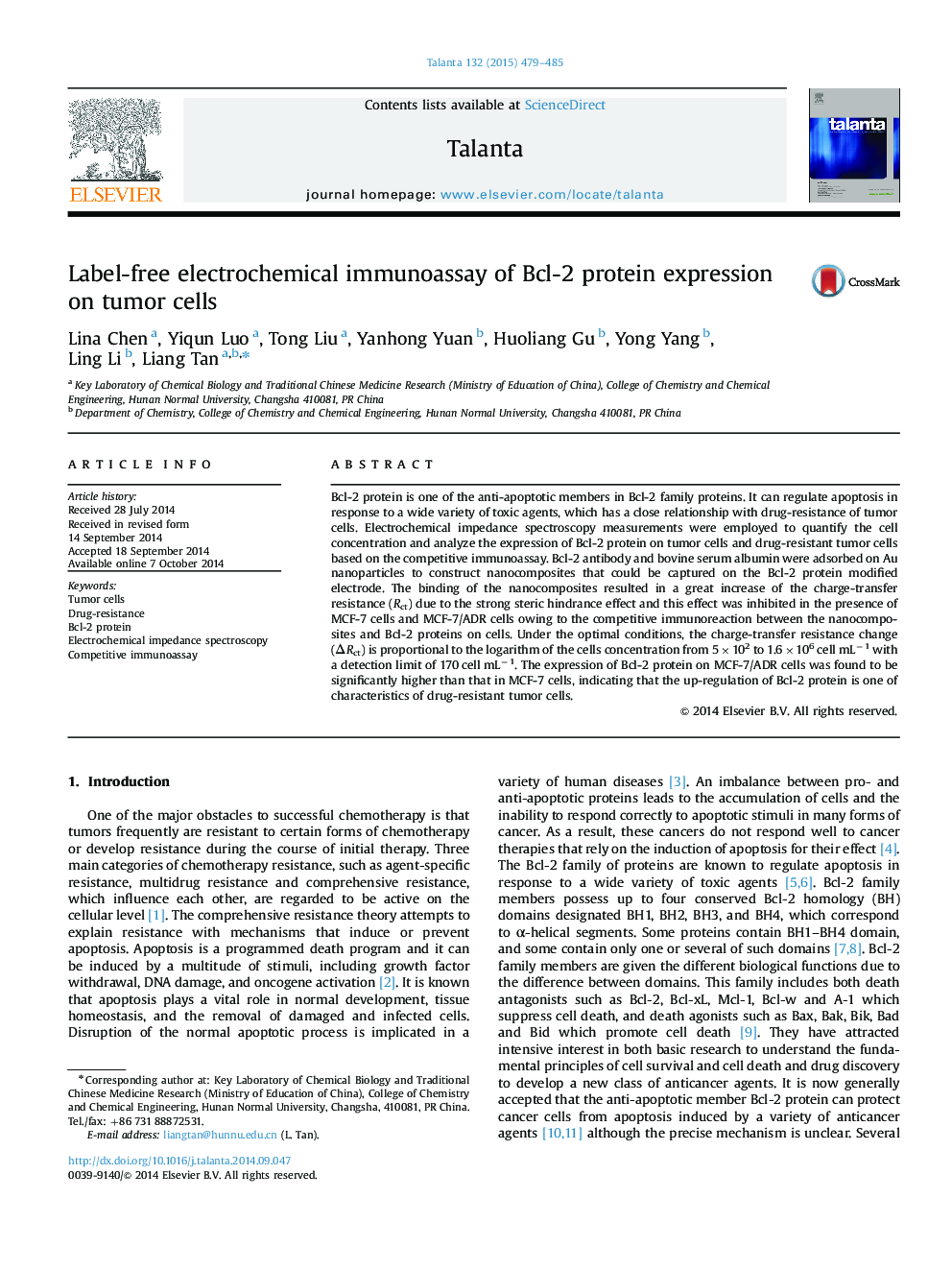| Article ID | Journal | Published Year | Pages | File Type |
|---|---|---|---|---|
| 1242043 | Talanta | 2015 | 7 Pages |
•A label-free electrochemical immunoassay of Bcl-2 protein on cells was developed.•The capture of BSA-Au NPs-Ab on the electrode surface was inhibited by cells.•The charge-transfer resistance change was used to quantify the cell number.•Bcl-2 protein expression in MCF-7/ADR cells is higher than that in MCF-7 cells.
Bcl-2 protein is one of the anti-apoptotic members in Bcl-2 family proteins. It can regulate apoptosis in response to a wide variety of toxic agents, which has a close relationship with drug-resistance of tumor cells. Electrochemical impedance spectroscopy measurements were employed to quantify the cell concentration and analyze the expression of Bcl-2 protein on tumor cells and drug-resistant tumor cells based on the competitive immunoassay. Bcl-2 antibody and bovine serum albumin were adsorbed on Au nanoparticles to construct nanocomposites that could be captured on the Bcl-2 protein modified electrode. The binding of the nanocomposites resulted in a great increase of the charge-transfer resistance (Rct) due to the strong steric hindrance effect and this effect was inhibited in the presence of MCF-7 cells and MCF-7/ADR cells owing to the competitive immunoreaction between the nanocomposites and Bcl-2 proteins on cells. Under the optimal conditions, the charge-transfer resistance change (ΔRct) is proportional to the logarithm of the cells concentration from 5×102 to 1.6×106 cell mL−1 with a detection limit of 170 cell mL−1. The expression of Bcl-2 protein on MCF-7/ADR cells was found to be significantly higher than that in MCF-7 cells, indicating that the up-regulation of Bcl-2 protein is one of characteristics of drug-resistant tumor cells.
Graphical abstractFigure optionsDownload full-size imageDownload as PowerPoint slide
